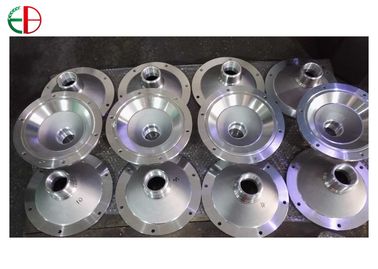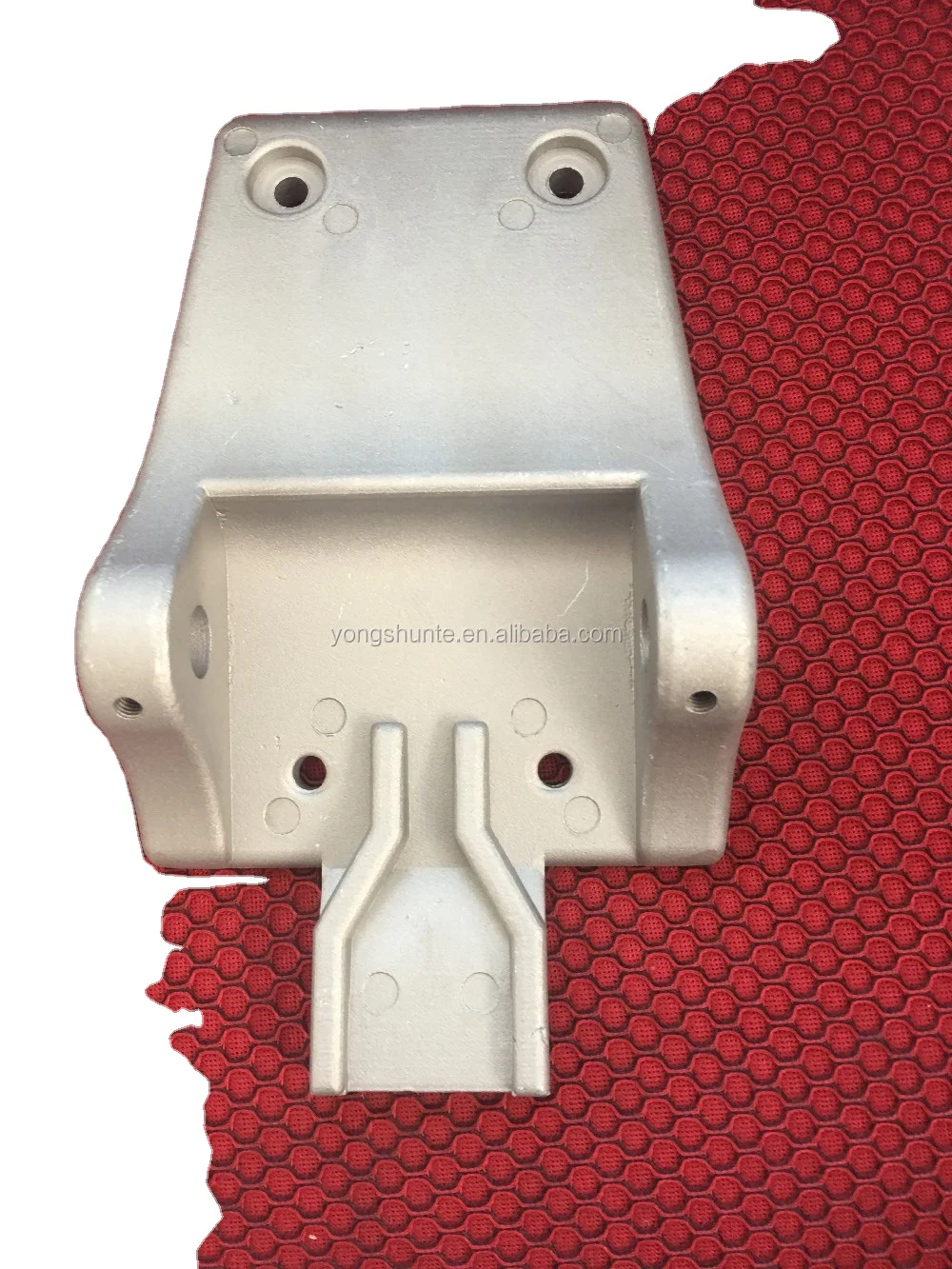Aluminum Foundry services that optimize your manufacturing output
The Role of Aluminum Foundries in Advancing Lightweight Production Solutions
Light weight aluminum foundries considerably add to the development of lightweight manufacturing remedies. Their ingenious casting innovations yield high-strength, light-weight parts necessary for industries such as automobile and aerospace. This development not only boosts item efficiency however additionally advertises sustainability with making use of recycled products. As these factories adjust to emerging practices and innovations, they lead the way for future growths in making efficiency and ecological duty. What lies ahead in this transformative journey?
The Advantages of Lightweight Products in Manufacturing
As markets increasingly look for effectiveness and sustainability, the fostering of lightweight products in manufacturing has actually become a vital method - Aluminum Foundry. These materials, especially light weight aluminum and compounds, use numerous advantages that enhance production procedures and item efficiency. Mainly, their decreased weight adds to reduce power consumption throughout transportation and procedure, resulting in significant cost savings
Light-weight products help with the style of more complicated geometries, enabling for better innovation in product growth. This flexibility typically causes enhanced performance and performance, satisfying the evolving needs of contemporary consumers.
Furthermore, making use of light-weight materials can enhance the long life of products as a result of their resistance to deterioration and tiredness. This sturdiness not only reduces upkeep costs yet additionally supports sustainability initiatives, as longer-lasting products contribute to less waste. To sum up, the benefits of lightweight products are critical in driving efficiency, development, and environmental responsibility in manufacturing.
Advancements in Light Weight Aluminum Casting Technologies
Recent developments in aluminum spreading innovations are changing the production landscape, particularly in the manufacturing of light-weight elements. Technologies such as high-pressure die casting and vacuum cleaner die casting have actually significantly boosted the precision and surface area coating of light weight aluminum parts - Aluminum Foundry. These techniques allow for the creation of complicated geometries while lessening material waste and improving mechanical homes

Furthermore, the implementation of real-time tracking systems ensures quality assurance throughout the spreading procedure, leading to more constant item end results. Collectively, these developments not only boost the efficiency of aluminum elements yet also sustain the industry's change towards even more lasting manufacturing practices.
Applications of Aluminum Components in Numerous Industries
While light weight aluminum components have actually long been utilized in numerous sectors, their convenience and light-weight homes proceed to drive ingenious applications across industries such as automobile, aerospace, and construction. In the vehicle sector, aluminum is increasingly made use of for engine blocks, wheels, and body panels, enhancing fuel effectiveness and performance. Aerospace suppliers take advantage of light weight aluminum for aircraft frameworks and elements, taking advantage of on Precision aluminum casting its strength-to-weight proportion to improve gas economy and haul capacity.
In the construction industry, light weight aluminum is favored for home window frameworks, roof, and architectural components, offering resilience and resistance to deterioration while lowering total structure weight. Additionally, the electric and electronic devices industries gain from aluminum's conductivity and light-weight nature, utilizing it in wiring, enclosures, and heat sinks. These diverse applications highlight the essential role of aluminum elements, which not just fulfill industry demands however also contribute to innovations in item style and capability across multiple fields.
Sustainability and Power Effectiveness in Light Weight Aluminum Foundries
The aluminum factory industry plays a crucial role in promoting sustainability and power performance, specifically as need for lightweight elements continues to expand throughout different fields. Foundries are progressively taking on eco-friendly methods, such as utilizing recycled aluminum, which greatly reduces power intake and greenhouse gas exhausts contrasted to key aluminum manufacturing.
Moreover, innovations in casting modern technologies improve energy performance by enhancing the melting procedures and lowering waste. Techniques like die spreading and financial investment casting permit exact material usage, reducing excess and scrap.
Furthermore, lots of foundries are purchasing renewable resource resources to power operations, further decreasing their carbon footprint. Applying energy management systems makes it possible for foundries to monitor and enhance power use, guaranteeing they operate at peak efficiency.

Future Fads in Lightweight Manufacturing Solutions
Just how will arising technologies form the future of lightweight manufacturing remedies? Developments such as innovative materials, automation, and additive manufacturing are readied to redefine production procedures. The integration of smart manufacturing modern technologies, including the Net of Points (IoT) and expert system (AI), will allow real-time surveillance and optimization, improving efficiency and decreasing waste.

As sustainability proceeds to be a critical issue, light-weight options will increasingly concentrate on recycling and reusing products, aligning with circular economic climate principles. This advancement in lightweight production will not just enhance item performance but likewise contribute to environmental goals, making sure that the industry stays competitive in a quickly altering market landscape.
Often Asked Questions
Exactly How Do Light Weight Aluminum Foundries Ensure Quality Assurance in Manufacturing?
Aluminum shops guarantee quality assurance in production with strenuous testing, standardized procedures, and constant surveillance - aluminum casting. They implement sophisticated technologies and knowledgeable personnel to preserve consistency, use this link reduce issues, and fulfill sector criteria throughout the manufacturing process
What Are the Main Challenges Encountered by Light Weight Aluminum Foundries?
Light weight aluminum factories deal with obstacles such as fluctuating resources expenses, preserving production effectiveness, ensuring regular high quality, adapting to technological developments, and meeting ecological regulations, every one of which influence their total functional performance and competition in the marketplace.
Just How Does Aluminum Recycling Effect Foundry Operations?
Light weight aluminum reusing substantially improves foundry operations by go to this web-site decreasing basic material expenses, lessening power consumption, and lowering ecological effect. This lasting method makes it possible for shops to enhance effectiveness while fulfilling increasing demand for lightweight, high-performance aluminum items.
What Skills Are Required for Workers in Light Weight Aluminum Foundries?
Employees in aluminum factories call for abilities in metallurgy, machining, quality control, and security practices. Effectiveness in running equipment, recognizing alloy residential properties, and problem-solving are also vital for efficient manufacturing and keeping high safety requirements.
Just How Do Light Weight Aluminum Foundries Deal With Waste Monitoring?
Light weight aluminum foundries manage waste through recycling scrap metal, utilizing effective waste partition strategies, and sticking to ecological regulations. They apply lasting practices to reduce garbage dump payments, ensuring that dangerous products are gotten rid of responsibly.
Aluminum factories significantly add to the evolution of light-weight manufacturing options. Recent improvements in light weight aluminum casting modern technologies are reinventing the manufacturing landscape, especially in the production of light-weight elements. While aluminum parts have long been used in numerous markets, their convenience and lightweight residential properties continue to drive innovative applications throughout fields such as auto, aerospace, and building and construction. In addition, the electrical and electronics industries profit from aluminum's conductivity and lightweight nature, using it in electrical wiring, rooms, and heat sinks. The aluminum shop industry plays an essential role in promoting sustainability and power efficiency, especially as demand for lightweight parts proceeds to expand across different sectors.